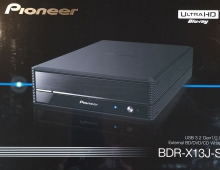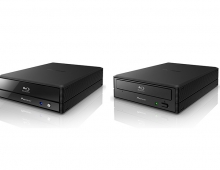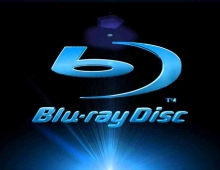
MLP Lossless For HD DVD
Audiophiles have had little reason to follow the high-definition video DVD format conflict. Until now.
For those who haven't been keeping tabs on the HD video struggles, two competing formats for storing HD video on disc have emerged: Blu-ray and HD DVD. The Blu-ray Disc Association, a 13-member group, which includes Sony, Philips, Panasonic, and Pioneer, claims that Blu-ray DVD players could be available by midyear 2005. High-Definition Digital Versatile Disc or HD DVD is a different and non-compatible technology using blue lasers, which is backed by Japanese electronics firms Toshiba and NEC and authorized by the DVD Forum.
Both formats will feature digital audio of course, but when it comes to high-resolution audio, some differences are emerging.
One of those differences was revealed last week as Dolby Laboratories announced that varying versions of their audio technologies have been selected as "mandatory formats" for HD DVD and Blu-ray. Dolby says the DVD Forum has selected Dolby Digital Plus and MLP Lossless as mandatory audio formats for HD DVD and the Blu-ray Disc Association announced that Dolby Digital will be a mandatory on Blu-ray Disc.
According to Dolby, which licenses MLP, content providers will be able to encode multiple channels of 24-bit/96kHz surround sound or 24-bit/192kHz stereo content onto a HD DVD release using MLP. "Because it delivers the highest audio fidelity possible without compromising picture quality or video bit rates, MLP Lossless is the perfect complement to Dolby Digital Plus," says a recent press release. "With MLP Lossless as mandatory audio format, consumers can experience, for example, their favorite pre-recorded concert performance at the highest level of audio fidelity and quality possible on an HD DVD."
Dolby explains that the advantages to DDP include bit-rate and channel extendibility. "For instances where higher bit rates can be allocated for audio playback, such as HD DVD, Dolby Digital Plus delivers the highest quality audio performance possible from a highly sophisticated perceptual coding process. Dolby Digital Plus is designed to offer discrete channel coverage beyond the current 5.1 standard."
DDP will likely find uses where bandwidth is at a premium or limited, such as with future cable, broadcast, and satellite systems. Dolby also notes, "In anticipation of future packaged media business models and format flexibility, Dolby Digital Plus's efficiency will also enable simultaneous streaming of audio content and software playback. This capability would enable consumers to watch a movie while listening to artists' or directors' commentary streamed directly from the studio website, for example."
For its part, the Blu-ray Disc Association says it still hasn't made a final decision about what audio codecs will be included in the specification, but according to the group's Richard Doherty, "The included audio codecs should offer a significant improvement over the audio formats supported by the current DVD spec. Blu-ray is currently looking into advanced audio codecs, including lossless codecs."
The score so far: Blu-ray, backed by Sony and Philips will run standard Dolby Digital, with other audio formats to be determined. HD DVD, backed by the DVD Forum, will use MLP and Dolby Digital Plus to offer similar audio specifications to DVD-Audio. Sound familiar?
From stereophile





















